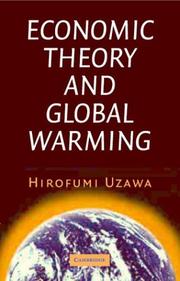| Listing 1 - 10 of 11 | << page >> |
Sort by
|
Book
Year: 2010 Publisher: Washington, D.C. : Congressional Budget Office,
Abstract | Keywords | Export | Availability | Bookmark
 Loading...
Loading...Choose an application
- Reference Manager
- EndNote
- RefWorks (Direct export to RefWorks)
Book
Year: 2011 Publisher: Washington, D.C. : Congressional Budget Office,
Abstract | Keywords | Export | Availability | Bookmark
 Loading...
Loading...Choose an application
- Reference Manager
- EndNote
- RefWorks (Direct export to RefWorks)
Book
Year: 2008 Publisher: Washington, DC : Federal Communications Commission, Office of Strategic Planning and Policy Analysis,
Abstract | Keywords | Export | Availability | Bookmark
 Loading...
Loading...Choose an application
- Reference Manager
- EndNote
- RefWorks (Direct export to RefWorks)
Book
Year: 2004 Publisher: Washington, DC : Congressional Budget Office,
Abstract | Keywords | Export | Availability | Bookmark
 Loading...
Loading...Choose an application
- Reference Manager
- EndNote
- RefWorks (Direct export to RefWorks)
Income tax --- Equilibrium (Economics) --- Mathematical models.
Book
Year: 2006 Publisher: [Washington, D.C.] : [Joint Committee on Taxation],
Abstract | Keywords | Export | Availability | Bookmark
 Loading...
Loading...Choose an application
- Reference Manager
- EndNote
- RefWorks (Direct export to RefWorks)
Taxation --- Stochastic analysis. --- Equilibrium (Economics) --- Econometric models.
Book
Year: 2008 Publisher: [Washington, D.C.?] : U.S. Dept. of Agriculture, Economic Research Service,
Abstract | Keywords | Export | Availability | Bookmark
 Loading...
Loading...Choose an application
- Reference Manager
- EndNote
- RefWorks (Direct export to RefWorks)
Agriculture and state --- Equilibrium (Economics) --- Econometric models. --- Mathematical models.
Book

Year: 1997 Publisher: Portland, Oregon : United States Department of Agriculture, Forest Service, Pacific Northwest Research Station,
Abstract | Keywords | Export | Availability | Bookmark
 Loading...
Loading...Choose an application
- Reference Manager
- EndNote
- RefWorks (Direct export to RefWorks)
Regional economics. --- Equilibrium (Economics) --- Political planning. --- Oregon --- Economic conditions.
Book
Year: 2010 Publisher: Washington, D.C. : Congressional Budget Office,
Abstract | Keywords | Export | Availability | Bookmark
 Loading...
Loading...Choose an application
- Reference Manager
- EndNote
- RefWorks (Direct export to RefWorks)
Debts, Public --- Saving and investment --- Bayesian statistical decision theory. --- Equilibrium (Economics)

ISBN: 1107137055 052106659X 1280162627 0511121318 0511205961 0511302754 0511610165 0511070594 0511062133 9780511062131 9780511070594 9780511121319 9780511610165 9780521823869 0521823862 9781280162626 9786610162628 661016262X 0521823862 9780521066594 Year: 2003 Publisher: Cambridge New York Cambridge University Press
Abstract | Keywords | Export | Availability | Bookmark
 Loading...
Loading...Choose an application
- Reference Manager
- EndNote
- RefWorks (Direct export to RefWorks)
In this book, Professor Uzawa modifies and extends the theoretical premises of orthodox economic theory to those broad enough to be capable of analyzing the phenomena related to environmental disequilibrium, particularly global warming, and of finding institutional arrangements and policy measures that may bring about a more optimal state where natural and institutional components are harmoniously blended. He constructs a theoretical framework in which three major problems concerning global environmental issues may effectively be addressed. First, all phenomena involved with global environmental issues exhibit externalities of one kind or another. Secondly, global environmental issues involve international and intergenerational equity and justice. Thirdly, global environmental issues concern the management of the atmosphere, the oceans, water, soil, and other natural resources that have to be decided by a consensus of all affected countries.
Air --- Global warming --- Equilibrium (Economics) --- Economics, Mathematical. --- Economics --- Mathematical economics --- Econometrics --- Mathematics --- DGE (Economics) --- Disequilibrium (Economics) --- DSGE (Economics) --- Dynamic stochastic general equilibrium (Economics) --- Economic equilibrium --- General equilibrium (Economics) --- Partial equilibrium (Economics) --- SDGE (Economic theory) --- Statics and dynamics (Social sciences) --- Warming, Global --- Global temperature changes --- Greenhouse effect, Atmospheric --- Pollution --- Economic aspects. --- Mathematical models. --- Methodology --- Environmental aspects --- Economics, Mathematical --- Atmosphere --- Pollution&delete& --- Economic aspects --- Mathematical models --- Business, Economy and Management --- Air - Pollution - Economic aspects --- Global warming - Mathematical models
Book
ISBN: 1462302351 1452752133 1282562231 9786613822505 1451911637 1451867107 Year: 2007 Publisher: Washington, D.C. : International Monetary Fund,
Abstract | Keywords | Export | Availability | Bookmark
 Loading...
Loading...Choose an application
- Reference Manager
- EndNote
- RefWorks (Direct export to RefWorks)
Financial globalization was off to a rocky start in emerging economies hit by Sudden Stops in the 1990s. The surge in foreign reserves since then is viewed as a New Merchantilism in which reserves are a war-chest for defense against Sudden Stops. We conduct a quantitative assessment of this argument using a framework in which precautionary savings affect foreign assets via business cycle volatility, financial globalization, and endogenous Sudden Stops. Our results show that financial globalization and Sudden Stop risk are plausible explanations of the surge in reserves but cyclical volatility, which has declined in the globalization period, is not.
Business cycles --- Equilibrium (Economics) --- Globalization. --- Mathematical models. --- Global cities --- Globalisation --- Internationalization --- International relations --- Anti-globalization movement --- Exports and Imports --- Macroeconomics --- Globalization --- International Investment --- Long-term Capital Movements --- Macroeconomics: Consumption --- Saving --- Wealth --- Globalization: General --- International economics --- Foreign assets --- Sudden stops --- Precautionary savings --- Consumption --- Balance of payments --- External position --- National accounts --- Investments, Foreign --- Capital movements --- Saving and investment --- Economics --- Mexico
| Listing 1 - 10 of 11 | << page >> |
Sort by
|

 Search
Search Feedback
Feedback About UniCat
About UniCat  Help
Help News
News